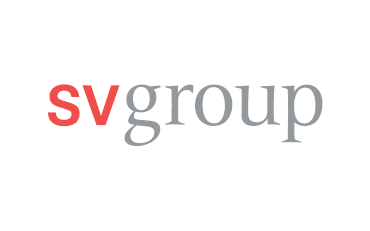Partnership with SV (Schweiz) AG 2022
Together with WWF, SV Schweiz launched the sustainability program “ONE TWO WE” in 2013. At the core of the program are tailor-made sustainability plans for establishments managed by SV Schweiz and raising awareness among guests.

The measures implemented to contain the SARS-CoV-2 coronavirus had a massive impact on the catering industry and has also change it in the long term. Due to the home office that has become established, this has been particularly noticeable in the catering industry. As a result, providers in the community catering sector have had to contend with a drop in sales and more difficult planning. WWF and SV (Schweiz) AG have therefore agreed to extend their goals to 2023 for CO2 reduction, seafood with regard to Score 1+2, and the label products.

CLIMATE AND ENERGY
SV Schweiz pursues ambitious climate goals — compatible with the Paris Climate Agreement — and tries to reduce additional environmental impact along the entire value-added chain as well. For example, SV Schweiz exclusively offers carrots with the IP-Suisse quality mark and sources tomatoes and peppers from greenhouses that are not heated with fossil fuels.
Greenhouse gas reduction SV Switzerland
This goal has been extended to 2023, see disclaimer above. The greenhouse gas emissions of SV Switzerland (SBT Scope 1-3) are to be reduced by 17% per main meal by the end of 2023 (compared to 2018). The scope comprises all business areas of SV Switzerland.
In 2022, an decrease of 0.8% was registered compared to 2021 (current absolute value 2022: 2.56 kg CO2e per sold main course).
Comment: The measures to contain the SARS-CoV-2 coronavirus, which were still ongoing at the beginning of 2022, continued to mean that planned projects to achieve further CO2 reductions had to be suspended. These were resumed in the summer of 2022. In addition, while Corona measures were still ongoing, numerous operations were open but barely utilized or struggled with volatile load factors. During ongoing operations, more resources (e.g., energy) were required relative to menus sold than in previous years. This effect continued throughout the rest of the year.

FISH AND SEAFOOD
Since 2019, SV Schweiz has committed to continuously increasing the share of fish from recommendable or acceptable sources according to the WWF in order to promote biodiversity.
Share of recommendable, or acceptable sources, according to WWF, relative to the total seafood range
This target has been extended to 2023 (see disclaimer above). In 2019, SV Schweiz set itself the goal of increasing the sustainability of its entire fish range. The entire offer of marine fish, shellfish, mussels, and freshwater fish should be either farmed or caught in the wild from sources identified as very recommendable, recommendable, or acceptable by WWF. The scope comprises the entire fish and seafood range of SV Schweiz.
In 2022, the share of fish and seafood from very recommendable, recommendable, and acceptable sources relative to the overall range was decreased from 99.2% (in 2021) to 98.1%.
Comment: The target was not achieved because products were subsequently added to the assortment and not evaluated, or errors occurred during ordering or delivery.
Share of sources identified by WWF as recommended relative to the overall seafood range
This goal has been extended to 2023 (see disclaimer above). The share of very recommendable and recommendable sources according to WWF should be at least 80% of the total amount purchased by SV in one year in kilograms by 2023. The scope comprises the entire fish and seafood range of SV Schweiz.
In 2022, the share of fish and seafood from recommendable sources decreased from 84.4% to 82.1%.

SUSTAINABLE CONSUMPTION
SV Schweiz promotes sustainable consumption by increasing the share of label products in the food it uses. Special climate-friendly meals are offered to raise awareness among guests which are meatless, contain few milk products, and do not contain products transported by air. They are also prepared primarily from seasonal products.
Share of recommended label products relative to overall revenue
This goal has been extended to 2023 (see disclaimer above). To promote sustainable consumption, SV Schweiz has set itself the goal of increasing the share of label products that are recommendable to at least 15% by the end of 2023. The revenue of label products to overall goods revenue is measured; meat, poultry, and fish are not included.
In 2022, the share of label products decreased from 14.6% (2021) to 13.3%.
Comment: The label share has decreased compared to 2021, as previously used products were not available. For example, IP-SUISSE meadow milk in 10-liter containers was not available. The smaller 1-liter units, on the other hand, were not feasible for the large farms. In addition, a change in ordering behaviour led to a lower label share.

